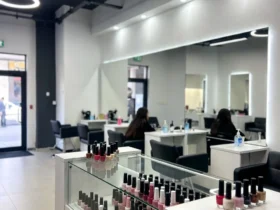No products in the cart.
6 Important Maintenance Tips for Industrial Buildings

Industrial buildings are complex structures that require regular maintenance to ensure they remain safe, efficient, and productive. Industrial buildings can suffer from structural damage without proper care or become hazardous environments for workers.
Regular inspections of the building’s exterior and interior should be conducted to detect any deterioration in materials or components. Additionally, all machinery and equipment should be regularly serviced per the manufacturer’s recommendations to keep them running at peak performance levels. In this article, we will discuss six key tips for maintaining an industrial building that you should consider if you own or manage one:
1. Check the Roof Regularly
One of the most important maintenance tips for an industrial building is regularly checking the roof. A well-maintained roof can help protect your property from extreme weather conditions, pests, and other hazards. It’s, therefore, essential to inspect it regularly to identify any damage or potential problems before they become serious.
Regular inspections should include checking for signs of wear and tear, such as cracked tiles, missing shingles, or broken seals around flashing. If you notice anything unusual during your inspection, make sure you contact a roofing contractor who can assess the situation and provide appropriate advice on how best to proceed with repairs if necessary. A professional roofer can also advise on preventive maintenance measures to help extend the life of your roof.
2. Invest in Regular Cleaning
Regularly scheduled cleaning services help ensure the premises are kept tidy. This includes dusting, mopping floors, vacuuming carpets, sanitizing surfaces and bathrooms, and removing any unwanted items from the building, such as old furniture or boxes of documents that may be gathering dust in storage rooms.
Keeping things clean will improve air quality and make it easier to detect potential problems with machinery or wiring before they become serious issues. Additionally, regularly replacing filters on heating/cooling systems can help extend their life cycles while ensuring better indoor air quality throughout the premises.
3. Ensure Adequate Ventilation
Ensuring adequate ventilation in an industrial building is essential for safety and productivity. Poor air quality can lead to health issues such as headaches, dizziness, nausea, coughing, and difficulty breathing. It can also cause machinery to malfunction or break down due to the accumulation of dust and debris.
Therefore it’s important to check that the HVAC system is working properly by inspecting ducts regularly. Any blockages or leaks should be fixed immediately as they could affect air flow throughout the premises. Additionally, consider installing additional fans or vents to ensure proper airflow in certain areas of your facility where natural ventilation may be lacking.
4. Regularly Check Electrical Wiring
Faulty electrical wiring can be a major safety hazard in industrial buildings, especially if machinery or equipment requires large amounts of electricity. That’s why it’s important to ensure all electrical wiring is regularly checked and inspected by a qualified electrician.
Regular maintenance should include checking for frayed wires, loose connections, or exposed wiring. If any faults are noticed, they should be repaired immediately to avoid the risk of fires or other hazards. Additionally, consider updating and replacing outdated wiring in certain building parts with modern electrical components that can handle higher loads safely and efficiently. Furthermore, when addressing ventilation needs, engaging in r stamp welding services is crucial to ensure that any welding or fabrication work complies with the necessary standards and regulations. It will ensure that welding work on pressure vessels or other critical components meets the required safety and quality standards, contributing to the overall integrity of the HVAC system.
5. Inspect Fire Safety Systems
It’s important to check that all fire protection equipment is functioning properly and up-to-date with local regulations. This includes testing smoke detectors, sprinkler heads, alarms, extinguishers, emergency lighting fixtures, and other components regularly—at least twice a year or more, depending on the specific needs of your facility. During inspections, ensure you inspect any electrical wiring associated with the system to identify any deficiencies before they become serious issues.
It’s also important to watch for signs of corrosion or wear and tear in pipes or other parts of the system, as these can limit its effectiveness over time if left unchecked. Ensure you take care when cleaning around fire safety equipment such as sprinkler heads (using only soft cloths) so you don’t accidentally damage them while trying to clean away dust.
6. Monitor Humidity Levels
High humidity levels can lead to various issues such as mold growth, corrosion, and in extreme cases, electrical shorts. Therefore, monitoring humidity levels regularly is important to identify potential problems before they become serious.
This can be done by installing a hygrometer or other device to measure relative humidity. Additionally, consider installing dehumidifiers in areas prone to higher moisture levels, such as bathrooms or storage rooms.
By regularly monitoring and adjusting humidity levels, you can ensure your industrial facility remains safe and operational for many years.
These are just some important maintenance tips for industrial buildings that you should keep in mind. Implementing these measures can help extend the lifespan of your premises as well as ensure their safety and productivity. If any problems are noticed, then they should be addressed immediately by a qualified professional. Regular inspections and preventive maintenance will help ensure industrial buildings remain safe and operational for many years.















Leave a Reply